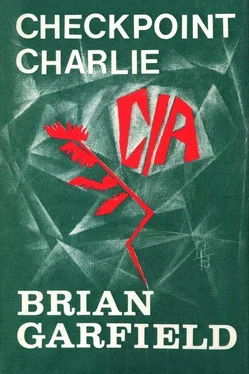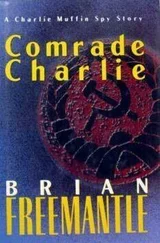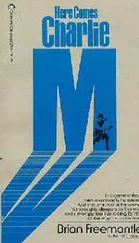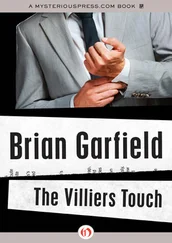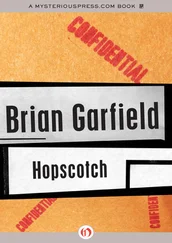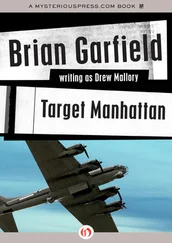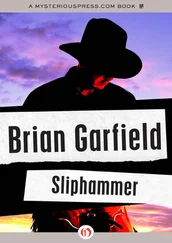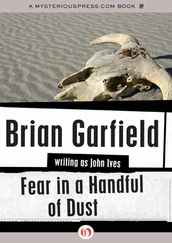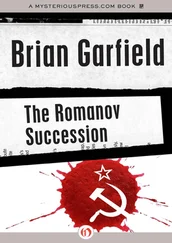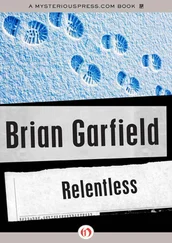Brian Garfield
Checkpoint Charlie
For Alyce Martha
With love
Copyright © 1976, 1977, 1978, 1979, 1981 by Brian Garfield
Grateful acknowledgment is made to Davis Publications for permission to reprint the stories listed from the following publication:
Alfred Hitchcock’s Mystery Magazine : “Joe Cutter’s Game” (which served as the basis for “Charlie’s Game” in this volume), July 1976
Ellery Queen’s Mystery Magazine : “Charlie’s Shell Game,” February 1978; “Checkpoint Charlie,” May 1978; “Trust Charlie,” June 1978; “Charlie’s Vigorish,” August 1978; “Challenge for Charlie,” October 1978; “Charlie in Moscow,” November 1978; “Charlie in the Tundra,” January 1979; “Charlie’s Dodge,” March 1979; “Passport for Charlie,” July 1979; “Charlie’s Chase,” October 1979.
Charlie’s Story
An Introduction by the Author
Charlie, who waddles and struts and gloats his way through the stories in this collection, is a character who delights me because of his contradictions. Charlie inhabits a violent world — the CIA — yet he is nonviolent; indeed, he’s inept with weapons and scorns them. (“Any fool can shoot people.”) He is old and fat, in a genre that conventionally calls for sleek young heroes. He is thunderingly conceited, an amiable know-it-all, in a world that normally allows no room for arrogant prima donnas. He is clever and ratiocinative in a world best known for its blundering screw-ups. He is an iconoclast in an organization that demands conformity. He insists upon working alone, even though the “company” that employs him is one that prizes team spirit and effort. He is intuitive and resourceful in the midst of an organization peopled by dogged data-gathering computer types. He is rumpled in the world of the neat; he is humorous in the world of the witless; he has nerve but not nerves; and his relationship with his boss, whom he refuses to call his “superior,” is characterized by mutual hatred and contemptuous loathing, even though the two characters exist in symbiosis: neither can survive without the other.
He is also rather desperate. He really enjoys only two things: eating, and practicing his trade — the trade of international trouble-shooter and extinguisher of brush-fires; a trade at which he is — and knows he is — the best in the world. Charlie’s greatest fear is that he will be fired: forced into ignominious retirement. In order to avoid that inevitable fate, Charlie goes to ever-increasing lengths to prove his inimitable excellence and therefore his indispensability. As he grows ever older and fatter, Charlie must continuously extend the outrageousness of his stunning feats of accomplishment. He is a man under constant desperate challenge; beneath the corpulent surface of self-confidence I believe there is a man very near utter panic.
In these stories I have made very little effort to conform to the realities of life in the CIA. The Company is a purely fictional setting here; it is no more real than the police force of Inspector Lestrade or the army of the Sad Sack. It simply provides the furniture and props against which Charlie acts out his performances.
But the physical surroundings of most of the stories are quite real. Writing this series of stories has allowed me to make use of places I have visited in my disorganized ramblings about the world. One rarely, for example, has reason to use the island of Attu (at the western tip of the Aleutian Island chain in the Bering Sea) as a setting for fiction but I was there once and, as Charlie’s experience in “Charlie in the Tundra” suggests, once is enough. Some of the locales are more commonplace, of course, especially the book’s eponymous one in Berlin — it has become a cliché setting for spy stories — but I felt obliged to set a story there simply because of the nice pun on the hero’s name.
Several of the stories were written while I was visiting the locales depicted in them; I wrote them on the spot, in longhand. (For some reason I prefer to write short stories in longhand, novels on the typewriter.) Others were written in retrospect. The first real Charlie story was the one set in Caracas, Venezuela; it was written four or five years after our visit to that city. And in a few stories Charlie finds his way to places I have not yet visited at all (Australia, for instance), but this probably happens because those places are on my agenda for the future.
In keeping with his bulk, Charlie — like the elephant — was conceived quite a long time before he was born. His father, so to speak, was Miles Kendig, the hero of my novel Hopscotch (1975). Kendig has some of Charlie’s characteristics: expertise, intuitive intelligence, iconoclasm, conceit, so forth. But Kendig has already been retired from the CIA before we meet him in Hopscotch; the game he plays is against the Agency, rather than within it; and of course Kendig is neither fat nor physically inept. Walter Matthau, who portrays Kendig in the film version of Hopscotch, ideally fits my own picture of the character; and I can hardly visualize Walter Matthau as Charlie Dark. Still, in many respects Charlie is a chip off the Kendig block, and indeed some of the subsidiary characters who surround Charlie have been adopted intact from Hopscotch: Myerson, Cutter and Ross all played important roles in the original novel, as did Mikhail Yaskov, the Russian superspy.
The bridge between Hopscotch and the Charlie stories was a short story of 1976 called “Joe Cutter’s Game” in which I brought back Cutter, Ross and Myerson to solve a sticky problem in Dar-es-Salaam. Kendig had dropped out of the picture by then, mainly because I had said everything I wanted to say about him in the original novel, and also because at the end of Hopscotch Kendig and the Agency had parted company permanently; there seemed no point trying to drag him back from wherever he may have disappeared to. In any case “Joe Cutter’s Game” was, in format and characters, the prototype for the Charlie stories; therefore, in order to make this collection complete, I have rewritten that story — replacing Cutter with Charlie — and it has become “Charlie’s Game,” the opening story of this collection. But in the interests of purism I must admit that the first actual Charlie Dark story was the one that appears in second position in this book: “Charlie’s Shell Game.”
For vague reasons having to do with film copyrights and the like, the names of the subsidiary characters were changed in some of the stories when they appeared originally in magazines ( EQMM and AHMM ): Myerson, who is Charlie’s irascible boss, became “Rice” in some of the magazine stories, and Leonard Ross became “Leonard Myers” in a curious reversal. In this present collection I have changed all the names back to the originals because those are the names by which I know the characters.
The stories appear in this book in the order in which they were written. All but the last story appeared originally in magazines. The last story — “Charlie’s Last Caper” — is a new story written expressly for the book; it puts a sort of cap on the collection. That story will not appear in magazines, because in a way it does conclude Charlie’s story and I’m not quite sure I’m ready to end the series so abruptly. I think of a collection in book form as a sort of alternative universe; what happens here in the book need not necessarily have happened in the magazines; therefore I feel free to write Charlie’s further adventures in the future. I do believe he will return sometime, although at the moment I have no specific plans for further stories about him. Perhaps he and I need to get a bit older together and see how the world looks then.
Читать дальше
